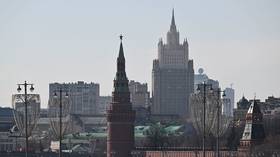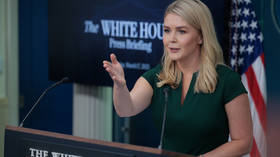Is “global warming” in need of a rebranding?

Climatologists are unanimous in the belief that human activity is causing global warming, but their warnings are going unheeded as sea levels continue to rise. Does their public-relation strategy need a makeover?
The bungling on the part of the climatologists never seemed more obvious than in the run-up to the Copenhagen Summit in December – eleven days that brought together hundreds of global leaders to address the issue of global warming and how to combat it.
In November, one month before the much-anticipated meeting convened, a media story broke over the discovery of some 1,000 emails stolen from the University of East Anglia’s Climatic Research Unit. For the global warming naysayers, this was almost as good as Dan Brown finding the Holy Grail. In other words, the emails “proved” that the global warming threat was "just a lot of hot air."
The Tory party in the UK, and the Republicans in the US had a heyday and immediately went to work selling the hackneyed story that global warming was nothing more than a bogeyman created by the whining liberals as yet another excuse to raise taxes and enforce government control upon the unsuspecting masses.
The response from the scientific community was akin to the sound that a tree makes when it falls in a forest and nobody is around: dead silence. No official rebuttal, no news conference to challenge the claims, nothing.
So what happened next did not require a computer model to predict: the Copenhagen Summit turned out to be a total flop. The political leaders rode, drove, flew and floated into the otherwise progressive Danish capital in every conceivable gas-guzzling machine on the market and then – after a few brave words about their commitment to changing the world and stuff like that – rode, drove, flew and floated out just as casually as they had arrived. Not even the brief appearance of US President Barack Obama could save the day [The participants of the summit did succeed, however, in releasing a watered-down document that recognizes that climate change is one of the greatest challenges today and that actions should be taken to keep any temperature increases to below 2°C. But the document is not legally binding and contains no legally binding commitments for reducing CO2 emissions].
But the story gets better. Remember the so-called “proof” that the skeptics of global warming waved triumphantly in front of everybody’s faces before the summit? You know, those hundreds of emails that proved the climatologists were just a batty old clique of killjoys who wanted to take away everybody’s SUVs? Well, that rock-solid proof never existed. In fact, the only thing all those stolen emails proved was that the climatologists needed a new firewall for their computer system.
As the Associated Press reported on March 30, “A parliamentary panel investigating allegations that scientists at one of the world’s leading climate research centers misrepresented data related to global warming announced Wednesday that it had found no evidence to support that charge.”
That news deserved repeating: There was no evidence to support the charge that scientists at one of the leading climate research centers misrepresented their data.
The lawmakers stressed that nothing in the more than 1,000 stolen e-mail messages or in the ensuing controversy challenged the scientific consensus that “global warming is happening and that it is induced by human activity.” To read the article, click here.
So where is the scientific community’s public-relations machine to trumpet the news of their innocence to the world? After all, global warming could be the single greatest calamity to hit the planet in a long time. Then again, the threat of global warming could also turn out to be the biggest dodo bird the scientific community has ever hatched. Yet however unlikely the latter scenario may be, this subject is just potentially too big to be left solely to the climatologists.
Yet for too many people, the idea of the earth succumbing to “global warming” sounds just too outrageous, especially after the third rock from the Sun just witnessed one of its nastiest winters in recent memory. And selling global warming in Russia is about as easy as selling hamburgers at a vegetarian convention.
Rebranding global warming?
Now, with the battle for the media highlands on, some researchers think it is time for a change of tactic, a different public relations approach to the question of global warming. For example, why not address global warming under the banner of “global pollution” instead?
On March 22, for example, Hong Kong registered its worst air-quality readings since records started being kept in 1995. Pollution levels were up to 14 times the amount recommended by the World Health Organization, casting a gray, sickly pallor over the harbor and blocking out Hong Kong’s famed skyline (the cause, incidentally, for this pollution was dust storms due to desertification in China, another symptom of global warming).
Pollution, unlike global warming, is a phenomenon that people can see, taste, smell and, sometimes it would seem, even touch. And everybody – even the staunchest disbelievers in global warming – wants to breathe clean, fresh air. In other words, nobody in their right mind could refute the existence of “global pollution.” So for the global warming doomsayers, this may be a great way to repackage their warnings. After all, cut back pollution and you cut back the very things, like carbon dioxide, that are causing global warming from happening in the first place.
Professor Aleksey Kokorin, the head of the Climate and Energy Program of the World Wildlife Fund, agrees that it might be time for global warming to get a rebranding.
“The approach to start talking about pollution looks like reasonable rebranding,” Kokorin says. “We could start by saying: We, the global community, are polluting the atmosphere with CO2 and increasing the greenhouse gas effect. Full stop.”
Kokorin, who has spent his entire career working on the problem of global warming, says it may help if scientists stop using “temperature” and “warming” as key words.
“Pollution is… something from man,” Kokorin says. “This is indisputable. And by concentrating on this easiy-to-understand issue we may begin to address the problem of global warming in its entirety.”
The head of the Climate and Energy Program in Russia also held out hope that teachers and schools would play a larger role in spreading the news about global warming, thus nurturing “a new mindset” when it comes to addressing this issue.
“School and universities in the future will have sections on global warming,” Kokorin predicts. “Maybe in 10 years students will have such books, or in the worst-case scenario, 30 years.”
Climatologists like Kokorin hope the world has enough time to teach such vital lessons to its children – for all of our sake.















